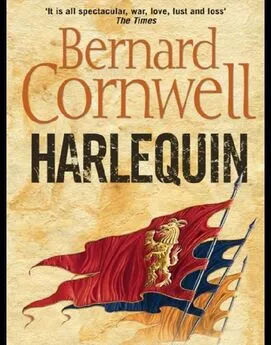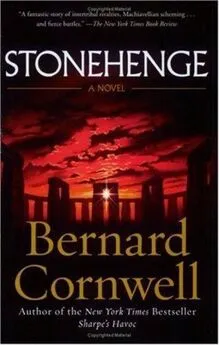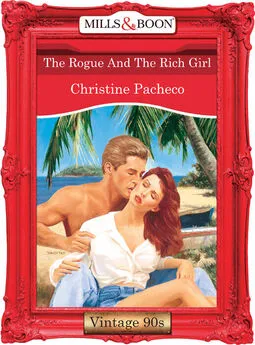Bernard Cornwell - The Grail Quest 2 - Vagabond
- Название:The Grail Quest 2 - Vagabond
- Автор:
- Жанр:
- Издательство:неизвестно
- Год:неизвестен
- ISBN:нет данных
- Рейтинг:
- Избранное:Добавить в избранное
-
Отзывы:
-
Ваша оценка:
Bernard Cornwell - The Grail Quest 2 - Vagabond краткое содержание
In Harlequin, Thomas of Hookton travelled to France as an archer and there discovered a shadowy destiny, which linked him to a family of heretical French lords who sought Christendom′s greatest relic.
Having survived the battle of Crécy, Thomas is sent back to England, charged with finding the Holy Grail. But Thomas is an archer and when a chance comes to fight against an army invading northern England he jumps at it. Plunged into the carnage of Neville′s Cross, he is oblivious to other enemies who want to destroy him. He discovers too late that he is not the only person pursuing the grail, and that his rivals will do anything to thwart him.
After hunting and wounding him, Thomas′s enemies turn him into a fugitive. Fleeing England, he travels to Normandy, determined to rescue Will Skeat, his old commander from Harlequin. Finally Thomas leads his enemies back to Brittany, where he goes to discover an old love and where his pursuers at last trap their reluctant pilgrim.
Vagabond is a vivid and realistic portrait of England at a time when the archer was king of Europe′s battlefields.
The Grail Quest 2 - Vagabond - читать онлайн бесплатно ознакомительный отрывок
Интервал:
Закладка:
Charles began to ask, then paused, frowning.
'The badge of Armorica, your grace,' the Lord of Roncelets answered. Today, as Duke Charles circled the town, he was accompanied by his great lords so that the defenders would see their banners and be awed. Most were lords of Brittany; the Viscount Rohan and the Viscount Morgat rode close behind the Duke, then came the lords of Chåteaubriant and of Roncelets, Laval, Guingamp, Rouge, Dinan, Redon and Malestroit, all of them mounted on high-stepping destriers, while from Normandy the Count of Coutances and the lords of Valognes and Carteret had brought their retainers to do battle for the nephew of their King.
'I thought Armorica was dead,' one of the Norman lords remarked.
'He has a son,' Roncelets answered.
'And a widow,' the Count of Guingamp said, 'and she's the traitorous bitch flying the banner.'
'A pretty traitorous bitch, though,' the Viscount Rohan said, and the lords laughed for they all knew how to treat unruly but pretty widows.
Charles grimaced at their unseemly laughter. When we take the town,' he ordered coldly, 'the dowager Countess of Armorica will not be hurt. She will be brought to me.'
He had raped Jeanette once and he would rape her again, and when that pleasure was done he would marry her off to one of his men-at-arms who would teach her to mind her manners and to curb her tongue. Now he reined in his horse to watch as more banners were hung from the ramparts, all of them insults to him and his house. 'It's a busy garrison,' he said drily.
'Busy townspeople,' the Viscount Rohan snarled. 'Busy goddamn traitors.'
'Townsfolk?' Charles seemed puzzled. 'Why would the townsfolk support the English?'
'Trade,' Roncelets answered curtly.
'Trade?'
'They're becoming rich,' Roncelets growled, 'and they like it.'
'They like it enough to fight against their lord?' Charles asked in disbelief.
'A disloyal rabble,' Roncelets said dismissively.
'A rabble,' Charles said, 'that we shall have to impoverish.' He spurred on, only checking his horse when he saw another nobleman's banner, this one showing a Yale flourishing a chalice. So far he had not seen a single banner that promised a great ransom if its lord was captured, but this badge was a mystery. 'Whose is that?' he asked. No one knew, but then a slim young man on a tall black horse answered from the rear of the Duke's entourage. 'The badge of Astarac, your grace, and it belongs to an imposter.' The man who had answered had come from France with a hundred grim horsemen liveried in plain black and he was accompanied by a Dominican with a frightening face. Charles of Blois was glad to have the black-liveried men in his army, for they were all hard and experienced soldiers, but he did feel somewhat nervous of them. They were somehow too hard, too experienced.
'An imposter?' he repeated and spurred on. 'Then we do not need to worry ourselves about him.'
There were three gates on the town's landward side and a fourth, opening onto the bridge, facing the river. Charles planned to besiege each of those gates so that the garrison would be trapped like foxes with their earths stopped. 'The army,' he decreed when the lords returned to the ducal tent, which had been raised close to the windmill that stood on the slight hill to the east of the town, 'will be divided into four parts, and one part will face each gate.' The lords listened and a priest copied down the pronouncement so that history would have a true record of the Duke's martial genius. Each of the four divisions of Charles's army would outnumber any relief force that Sir Thomas Dagworth could gather, but, to make himself even more secure, Charles ordered that the four encampments were to surround themselves with earthworks so that the English would be forced to attack across ditches, banks, palisades and thorn hedges. The obstacles would conceal Charles's men from the archers and give his Genoese crossbowmen cover while they rewound their weapons. The ground between the four encampments was to be cleared of hedges and other obstacles to leave a bare wilderness of grass and marsh.
'The English archer,' Charles told his lords, 'is not a man who will fight face to face. He kills from a distance and he hides behind hedges, thus frustrating our horses. We shall turn that tactic against him.' The tent was big, white and airy, and the smell inside was of trampled grass and men's sweat. From beyond the canvas walls came the sound of dull thudding as the engineers used wooden mallets to assemble the biggest of the great siege engines.
'Our men,' Charles further decreed, 'will stay within their own defences. We shall thus make four fortresses that will stand at the four gates of the town and if the English send a relief force then those men will have to attack our fortresses. Archers cannot kill men they can-not see.' He paused to make sure those simple words were understood.
'Archers,' he said again, 'cannot kill men they cannot see. Remember that! Our crossbows will be behind banks of earth, we will be screened by hedges and hidden by palisades, and the enemy will be out in the open where they can be cut down.'
There were growls of agreement for the Duke made sense. Archers could not kill invisible men. Even the fierce Dominican who had come with the soldiers in black looked impressed.
The midday bells rang from the town. One, the loudest, was cracked and gave a harsh note. 'La Roche-Derrien,' the Duke continued, 'does not matter. Whether it falls or not is of little consequence. What matters is that we draw our enemy's army out to attack us. Dagworth will probably come to protect La Roche-Derrien. When he arrives we shall crush him and once he is broken then only the English garrisons will be left and we shall take them one by one until, at summer's end, all Brittany is ours.' He spoke slowly and simply, knowing it was best to spell out the campaign for these men who, though they were tough as rams, were not renowned as thinkers. 'And when Brittany is ours,' he went on, 'there will be gifts of land, of manors and of strongholds.' A much louder growl of approbation sounded and the listening men grinned for there would be more than land, manors and castles as the rewards of victory. There would be gold, silver and women. Lots of women. The growl turned into laughter as the men realized they were all thinking the same thing.
'But it is here' – Charles's voice called his audience to order – 'that we make our victory possible, and we do it by denying the English archer his targets. An archer cannot kill men he cannot see!' He paused again, looking at his audience and he saw them nodding as the simple truth of that assertion at last penetrated their skulls. 'We shall all be in our own fortress, one of four fortresses, and when the English army comes to relieve the siege they will attack one of those fortresses. That English army will be small. Fewer than a thousand men!
Suppose, then, that it begins by attacking the fort I shall make here. What will the rest of you do?'
He waited for an answer and, after a while, the Lord of Roncelets, as uncertain as a schoolboy giving a response to his master, frowned and made a suggestion. 'Come to help your grace?'
The other lords nodded and smiled agreement.
'No!' Charles said angrily. 'No! No! No!' He waited, making sure they had understood the simple word. 'If you leave your fortress,' he explained, 'then you offer the English archer a target. It is what he wants! He will want to tempt us from behind our walls to cut us down with his arrows. So what do we do? We stav behind our walls. We stay behind our walls.' Did they understand that? It was the key to victory. Keep the men hidden and the English must lose. Sir Thomas Dagworth's army would be forced to assault earth walls and thorn hedges and the crossbowmen would spit them on quarrels and when the English were so thinned that only a couple of hundred remained on their feet the Duke would release his men-at-arms to slaughter the remnant. 'You do not leave your fortresses,' he insisted, and any man who does will forfeit my generosity.' That threat sobered the Duke's listeners. 'If even one of your men leaves the sanctuary of the walls,'
Charles continued, 'we shall make sure that you will not share in the distribution of land at the end of the campaign. Is that plain, gentle-men? Is that plain?'
It was plain. It was simple.
Charles of Blois would make four fortresses to oppose the four gates of the town and the English, when they came, would be forced to assault those newly made walls. And even the smallest of the Duke's four forts would have more defenders than the English had attackers, and those defenders would be sheltered, and their weapons would be lethal, and the English would die and so Brittany would pass to the House of Blois. Cleverness. It would win wars and make reputations. And once Charles had shown how to defeat the English here he would defeat them through all France. Because Charles dreamed of a crown heavier than Brittanv's ducal coronet. He dreamed of France, but it must begin here, in the flooded fields about La Roche-Derrien, where the English archer would be taught his place.
In hell.
The nine siege engines were all trebuchets, the largest of them capable of throwing a stone weighing twice the weight of a grown man for almost three hundred paces. All nine had been made at Regensburg in Bavaria and the senior engineers who accompanied the gaunt machines were all Bavarians who understood the intricacies of the weapons. The two biggest had throwing beams over fifty feet long and even the two smallest, which were placed on the far bank of the Jaudy to threaten the bridge and its barbican, had beams thirty-six feet long.
The biggest two, which were named Hellgiver and Widowmaker, were placed at the foot of the hill on which the windmill stood. In essence each was a simple machine, merely a long beam mounted on an axle like a giant's balance or a child's seesaw, only one end of the see-saw was three times longer than the other. The shorter end was weighted with a huge wooden box that was filled with lead weights, while the longer end, which actually threw the missile, was attached to a great windlass which drew it down to the ground and so raised the ten tons of lead counterweights. The stone missile was placed in a leather sling some fifteen feet long, which was attached to the longer arm. When the beam was released so that the counterweight slammed down, the longer end whipped up into the sky and the sling whipped even faster and the boulder was released from the sling's leather cradle to curve through the sky and crash down onto its target. That much was simple. What was hard was to keep the mechanism greased with tallow, to construct a winch strong enough to haul the long beam down to the ground, to make a container strong enough to thump down again and again and not spill the ten tons of lead weights and, trickiest of all, to fashion a device strong enough to hold the long beam down against the weight of the lead vet capable of releasing the beam safely. These were the matters on which the Bavarians were experts and for which they were paid so generously.
There were many who said that the Bavarians' expertise was redundant. Guns were much smaller and hurled their missiles with greater force, but Duke Charles had applied his intelligence to the comparison and decided on the older technology. Guns were slow and prone to explosions that killed their expensive gunners. They were also painfully slow because the gap between the missile and the gun's barrel had to be sealed to contain the powder's force and so it was necessary to pack the cannon ball about with wet loam, and that needed time to dry before the powder could be ignited, and even the most skilful gunners from Italy could not fire a weapon more than three or four times a day. And when a gun fired it spat a ball weighing only a few pounds. While it was true that the small ball flew with a velocity so great that it could not even be seen, nevertheless the older trebuchets could throw a missile of twenty or thirty times the weight three or four times in every hour. La Roche-Derrien, the Duke decided, would be hammered the oldfashioned way, and so the little town was surrounded by the nine trebuchets. As well as Hellgiver and Widowmaker, there was Stone-Hurler, Crusher, Gravedigger, Stonewhip, Spiteful, Destroyer and Hand of God.
Читать дальшеИнтервал:
Закладка:





![Робин Хобб - Странствия Шута [Fool’s Quest]](/books/1086209/robin-hobb-stranstviya-shuta-fool-s-quest.webp)

